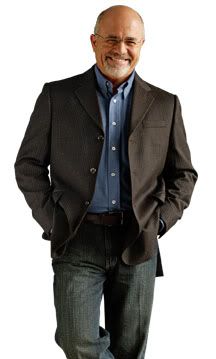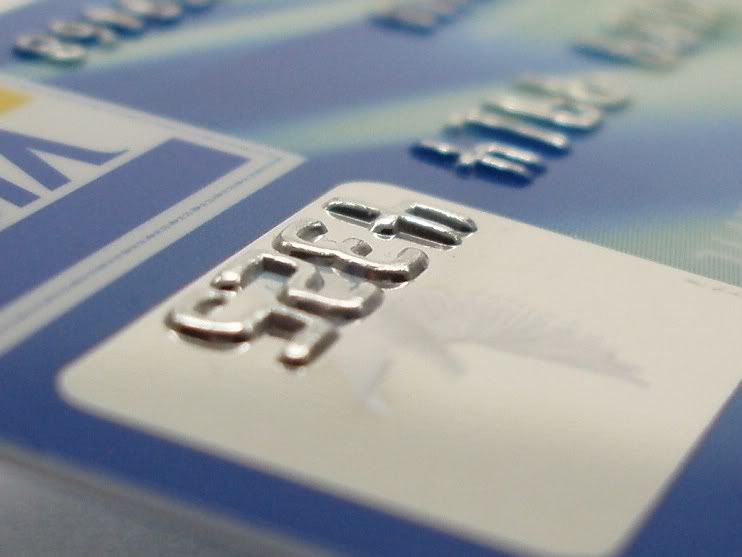Dave Ramsey says “Debt is not a tool”
By Randell Tiongson on September 17th, 2009
Many of us grew up with the notion that debt is part of our lives and will always be here to stay. I even here people say that “walang mayaman na walang utang” … obviously, that’s not really true. I know many rich people and most of them have no debts, personal or business.
Here’s what Dave Ramsey says…

“Debt is not a tool!”
Myth: Deb is a tool and should be use to create prosperity.
Truth: Debt adds considerable risk, most often doesn’t bring prosperity, and isn’t used by wealthy people nearly as much as we are led to believe.
Should I give my child a credit card?
By Randell Tiongson on September 15th, 2009
Many parents are thinking about giving their children credit cards either as an extension of their credit cards or arranging for a bank to give them one with their guarantee. Is this a good idea? Well, not really.
Parents often think that by giving their children credit cards, they can help them become financially responsible… uhmmm, I don’t think so!
Having credit cards are often associated as a passage into adulthood, like a driver’s license, drinking alcohol legally, watching an R rated movie, etc. Sadly, none of them are in anyway related to adulthood. Credit cards, without the discipline is potentially dangerous. By giving your child a credit card, you are exposing your child into the temptation of spending money he does not have. As parents, we do not give our teenaged children alcohol so that he will learn how to control his liquor… that’s really dumb. Many ‘macho’ fathers feel that if they teach their children to drink alcohol early, their children will not feel deprived and will not go on a drinking spree. Toink! Parents who expose their children to alcohol end up having a liking to alcohol at a very early age. I should know, I was one of them. A father who introduces pornography to his teenager is a guarantee that his son will have a pornography addiction. To think that many fathers do that makes me wonder.
I believe that getting your teenager a credit card is teaching him to be financially irresponsible. Dave Ramsey (my favorite Personal Finance Coach) says “By giving a teenager a credit card, the parent, the one with supposed credibility, introduces a financially harmful substance and endorses its use, which is dumb but unfortunately normal in today’s families.” Makes perfect sense, doesn’t it?
Some parents will claim that credit cards are just for their child’s ‘emergencies’. Here’s a thought: with a credit card, they will define many things as an emergency (shopping, trips, parties, etc.). An ATM card now doubles as a debit card with the same convenience as a credit card – without the danger of getting into debt.
We all know that credit cards are dangerous. Exposing young people to a potentially dangerous thing is very unwise. Instead of giving our kids a credit card, why don’t we teach them about budgeting and the power of delayed gratification? If we really want our teenagers become financially responsible, let us spend ample time in educating them about the intricacies of personal finance. Let’s teach them about the value of savings and introduce them to the idea of investing.
Here’s a better idea, introduce the principles of biblical finance to your children – then, and only then can you assure that your kids will be very responsible adults, financially and in all the facets of their lives. “Only be careful, and watch yourselves closely so that you do not forget the things your eyes have seen or let them slip from your heart as long as you live. Teach them to your children and to their children after them.” (Deuteronomy 4:9, NIV).
Tired of money seminars that promises prosperity but fails to deliver practical, sensible and real financial knowledge? Attend a real money seminar, the No Nonsense Seminar on Finance on Sept. 25 at the Victory Center, Upper Level, Promenade, Greenhills. This is a program presented by the Registered Financial Planner Institute and V Cargo.

Economic Update (9.1.2009)
By Randell Tiongson on September 1st, 2009
Economic Update (9.1.2009)
Philippines averts recession with better than expected 2Q09 GDP
- The Philippine economy grew better than market expectations in the 2Q09.
- COMMENT: GDP rebounded from a -2.1% contraction in the 1Q09 with a +2.4% growth on a seasonally adjusted basis.
- The country has officially escaped a recession, helped by government pump-priming and steady remittances
- The actual results were better than street expectations of +0.3% Yoy and +1.3% QoQ.
- Philippine 2Q09 GDP grew 1.5% Yoy and +2.4% over 1Q09.
- On the demand side, the country’s resilient performance was driven by government spending which increased 9.1% Y/Y.
- This was driven by aggressive pump-priming activities in the 2Q09.
- Investments in construction expanded by 11.7 percent from 1.0 percent in 2008.
- Public Construction rebounded magnificently with 29.9 percent growth from negative 5.6 percent in the previous year.
- By industrial origin, the INDUSTRY sector carried growth in the 2Q09 with a seasonal +4.5% growth.
- This was bolstered by the strong performances of Mining & Quarrying and Construction.
- According to the NSCB, per capita GDP declined by 0.5 percent from 2.1 percent in the previous year.
- Per capita PCE also slowed down to 0.3 percent from 2.1 percent.
- At current prices, the per capita GNP now stands at P44,828 or US$937 for the first semester.
Philippines can achieve +1.8% growth for 2009; Look at election themes
- With the actual 2Q09 results, the Philippines is now on track to meet upper end of the govt’s.target range for FY2009 which is +1.8% growth.
- With GDP growing by +1% in the 1st semester, the Philippines needs to expand 2.6% in the 2H09 to reach +1.8% full year growth.
- THis figure is highly achevable according to NEDA officials.
- Aside from improving global prospects, stronger domestic consumption and election spending will prop up the economy in 2H09.
- The official target growth range for the year is +0.8% to +1.8%.



